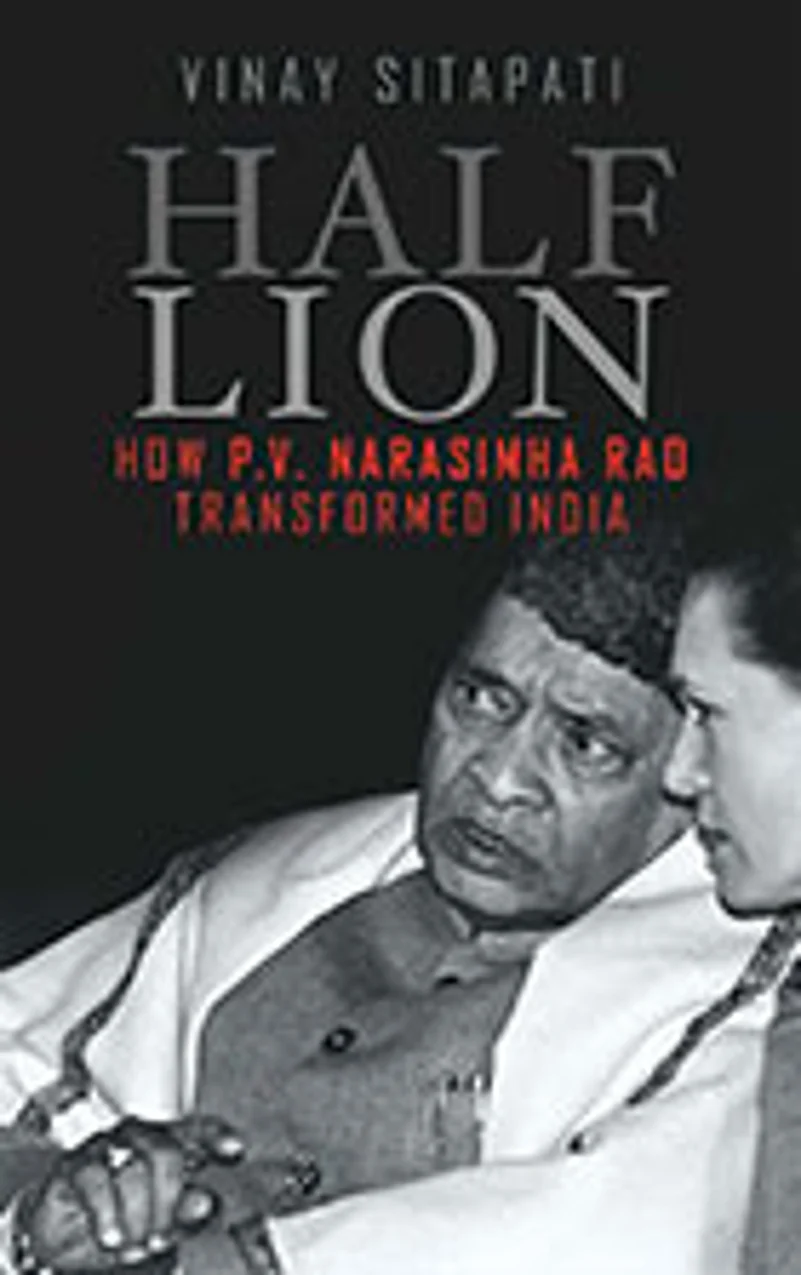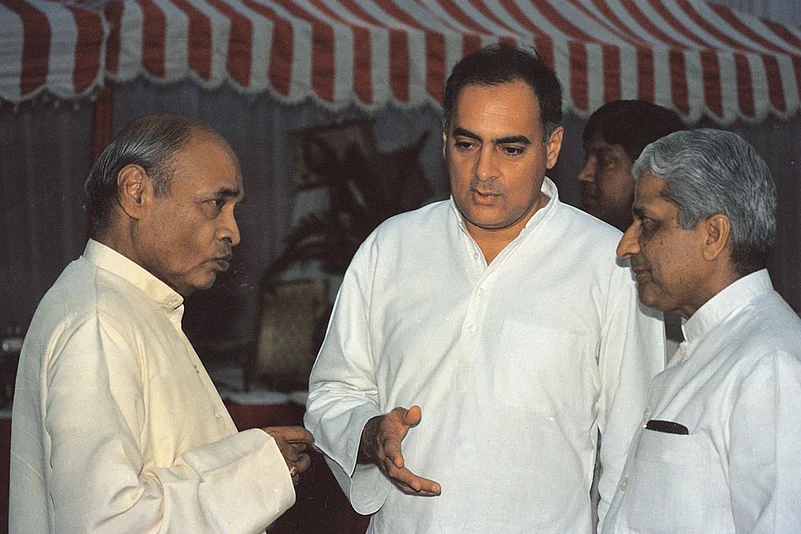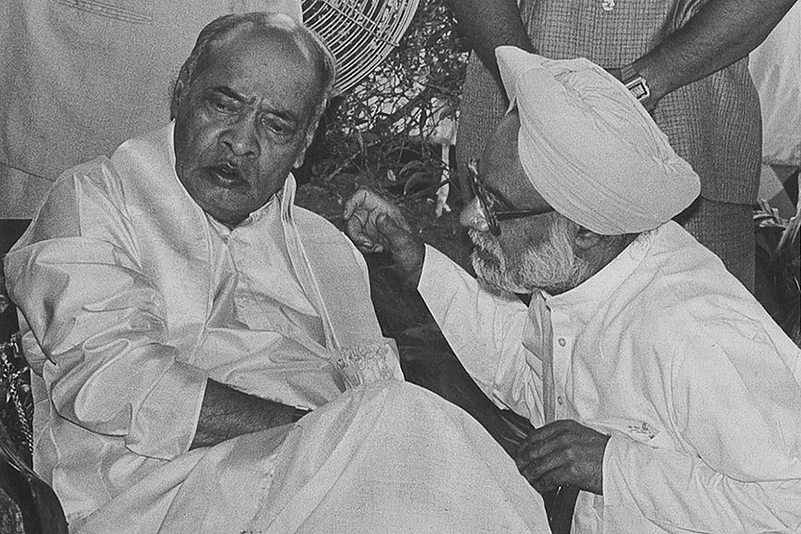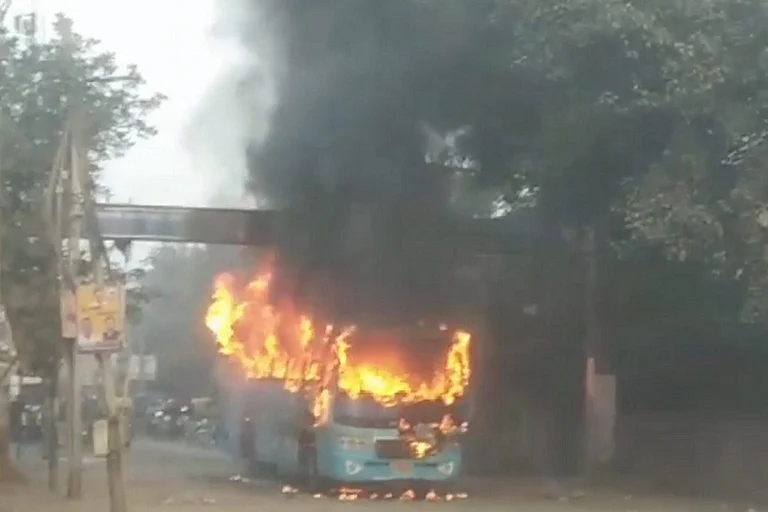
(As told to Uttam Sengupta)
It was while reading the book ‘Deng Xiaoping and the Transformation of China’ that I became aware of how much Deng had influenced P V Narasimha Rao. I was reading up everything I could find on Rao when the publishers got in touch with me for a biography of Sardar Patel. I persuaded them to consider Rao instead and with the 25th anniversary of liberalisation being observed this year, they insisted that the book be published this year.
Rao was such a huge fan of Deng that he was deeply upset when the then Prime Minister Rajiv Gandhi did not take him along to meet Deng when they visited China in 1988, even though Rao was then the External Affairs Minister. By the time Rao himself went to China as Prime Minister in the nineties, Deng had retired. Rao almost begged for a meeting with Deng but the request was was turned down and Rao was given the impression that Deng would have agreed to meet someone from the Nehru-Gandhi family but somehow he was not considered worthy enough. It rankled.
Rao was denied a Congress ticket in 1991, a year after his scathing essay ‘The Great Suicide’ was published by Mainstream. Everyone in Delhi of course knew that Rao and the Mainstream editor late Nikhil Chakravarty were close friends and that it was Rao who used to write a column under the pseudonym ‘Congressman’. In the essay Rao blamed Rajiv Gandhi for frittering away a mammoth mandate and blamed it on his ignorance, arrogance, political insecurity and naivete. He did not believe Rajiv Gandhi had taken any money in the Bofors scam but felt that the then Prime Minister knew who had taken the money. A dejected Rao was preparing to close his bank accounts, leave Delhi and take over as the head of a Mutt in a southern state when Rajiv Gandhi was assassinated. Rao seized the opportunity and bounced back.
While Rajiv had little patience with the ‘old fogeys’ in the Congress, Rao himself had no hesitation in learning from the young. In his diary he records that his interest in computers was ignited by a conversation Rajiv Gandhi was having with a technocrat. While Rajiv Gandhi was discussing ways of reducing import duty on computer peripherals, he quipped that the old fogeys of his party would not understand what he was talking about.
The same evening he called up his electrical engineer son, and this was sometime in 1985, and asked for a computer to be shipped to him. Once it arrived, he hired a ‘Master’ to teach him the basics. But the teacher was dispensed with after just 20 days and thereafter Rao taught himself the intricacies of the computer, programming and computer languages.
He had this natural curiosity to learn, which explains how he picked up 13 languages. When he was removed by Indira Gandhi as the general secretary of the party, he enrolled himself in JNU to learn Spanish. He also learnt to play the Piano.
As Prime Minister between 1991-96 he was almost always walking on the razor’s edge. He had little support in his own party, which had 232 seats in the Lok Sabha and depended on support by other parties to survive in power; he withstood several no-confidence motions including the one in which he was accused of bribing JMM legislators to secure their support. One therefore never ceases to wonder how under these circumstances he could achieve so much.

I discovered that he had an uncanny ability to assess not only the weaknesses of others but also his own weaknesses. Every day he would subject himself to the same rigour and scrutinise his own actions. He would methodically note down the pros and cons of each decision.
What also struck me is the sophistication which he brought to deal with issues. For example, while Rao wanted to establish diplomatic relationship with Israel, he first invited Yasser Arafat to Delhi. Arafat was told that unless India had its own mission in Israel, it would not be able to intercede on behalf of Palestine. Arafat got the message and told the media that establishing diplomatic relationship was a sovereign decision to be taken by India. Having thus prepared the ground, Rao announced the decision while adding that the move had the blessing of Arafat.
Similarly, although he held the industry portfolio, he got his MOS to announce the delicensing policy and that too on the budget day, knowing fully well that the budget coverage in next day’s newspapers would overshadow the delicensing story.
While he is blamed for not doing enough to prevent the demolition of the Babri Masjid in 1991, I found he had clearly noted down the pros and cons of imposing President’s Rule in Uttar Pradesh. None of his cabinet ministers who criticize him for not dismissing the Kalyan Singh Government, I found, had themselves suggested that President’s Rule be imposed. There were several meetings of the Cabinet Committee on Political Affairs in the month preceding the demolition but there is no evidence or record that the issue was even raised. Congress of course did not have a majority in either House.
The story that Narasimha Rao was sleeping or doing pooja at the time of the demolition is also untrue." I discovered that at 12 Noon on December 6, the Intelligence Bureau had reported that everything was fine. But at 12.15 pm the information came that the first Karsewaks had scaled the wall and had started demolishing the mosque. For some time during this window, visitors were not allowed into his room and that apparently triggered the story which acquired a life of its own.
He was a loner. His family never stayed with him in Delhi but visited him occasionally. His wife took care of the ancestral land and brought up his eight children. While he and his eldest son did not exchange a word for 25 years, he had a better emotional connect with his daughters and grandchildren. He was in a relationship with the politician Laxmi Kantamma and never tried to hide it although this was held against him by the Congress. He also had a close confidante in Kalyani Shankar in Delhi whom he completely trusted.
Chandraswami is again someone who he seems to have relied upon for collecting political gossip. They had known each other from their Hyderabad days and of course shared a common interest in astrology. As Prime Minister Rao travelled to the US and was desperate to meet American CEOs like Jack Welch. The Indian mission was not of much use to him and it was Chandraswami who arranged his meetings.
While there can be no doubt about his involvement in the JMM bribery case and the Hawala case etc., he actually died in debt. When he died in December, 2004 he owed his lawyers Rs 36 lakh and had made up his mind to sell of his house in Hyderabad to pay off the debt.
The biography begins with his death and the shabby treatment given to his memory by the Congress. I devote a separate chapter on Sonia Gandhi. While he had all but been forgotten, the TRS has discovered him as the Telugu icon, BJP now sees in him a Rightist icon. But Rao was a pragmatist.
Since the UPA Government refused to organize birthday celebrations from 2004 to 2014, Rao’s family and well-wishers would organize private celebrations in Delhi. Rao loyalist M S Bitta would bring bus loads of people from Punjab who had never heard of Rao to fill up the auditorium while a few faithful occupied the front row. Dr Manmohan Singh, who attended Rao’s funeral in Hyderabad, has been a regular and has never missed the function.
This interview with Uttam Sengupta has been edited to correct some errors.
Vinay Sitapati’s biography of former prime minister P.V. Narasimha Rao, ‘Half-Lion’, published by Penguin Random House India, is due to be released on June 27.
Slide Show
Known for being a polygot, Rao translated several literary works to various languages. Among his notable works is a translation of Hari Narayan Apte’s Marathi novel Pan Lakshat Kon Gheto into Telugu.





















